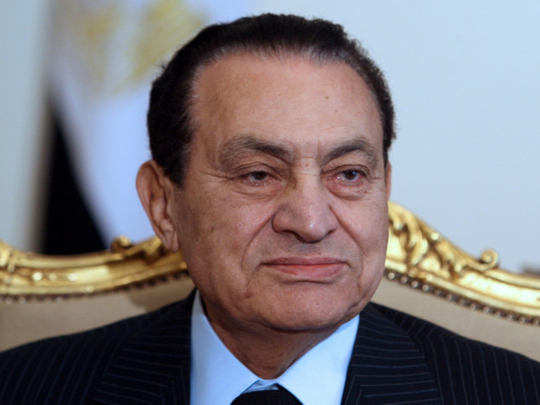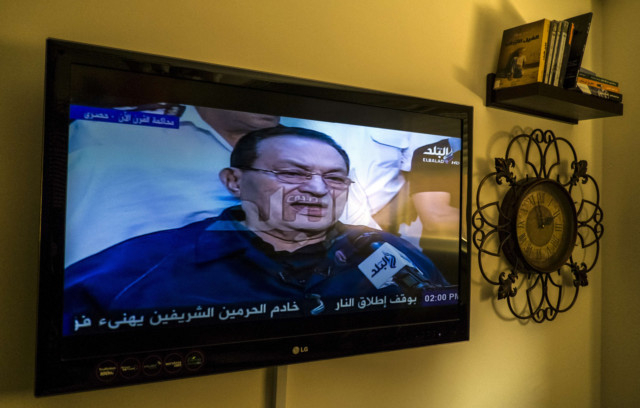
Cairo: Egypt’s former president Hosni Mubarak on Wednesday denied ordering the killing of hundreds of protesters in a 2011 uprising that eventually forced him out of power.
“Mohammad Hosni Mubarak would never order the killing of demonstrators and shedding the blood of Egyptians while he has spent his life in defending his country and its people,” Mubarak, 86, told a Cairo court in his first public address since his ouster.
Mubarak, his interior Minister Habib Al Adly and six former security chiefs are charged with involvement in the killing of more than 840 protesters in the 18-day uprising.
“I gave up power voluntarily to prevent bloodshed after manipulators of religion turned peaceful demonstration into acts of violence,” Mubarak said, implicitly referring to Islamists, who briefly ruled Egypt after him.
Mubarak, who ruled Egypt for nearly 30 years, appeared alert as he addressed the court in a televised hearing while sitting on a gurney.
Advocating his legacy as a long-time president, Mubarak said he had re-established Egypt’s ties with the Arab countries severed under his predecessor Anwar Al Sadat and achieved the highest economic growth in the country’s history.
“I have not paid attention to attempts by some people to belittle my role (after he stepped down). I have always been dedicated to the nation,” Mubarak said, reading a written statement.
Saying that Wednesday’s address may be his last before his death, he called on Egyptians to rally behind incumbent President Abdul Fattah Al Sissi who, like Mubarak, is an ex-army commander.
The court said it would announce a verdict in the case on September 27.
In June 2012, a criminal court sentenced Mubarak to life in prison after convicting him of failing to prevent the killing of protesters.
In January 2013, Egypt’s top appeals court overturned the sentence and ordered a retrial for him.
Mubarak is currently serving three years in prison after convicted of embezzling public money allocated for renovating presidential palaces when he was in power.












